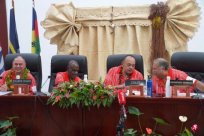The US House of Representatives opened the "China Week" for a week on September 9, local time. Before the US presidential and parliamentary elections, dozens of bills related to China were approved.The Chinese bill.
From the "anti -Chinese unmanned mechanism bill" that curb Chinese technology, political and economic influence, to the "Hong Kong Economic and Trade Certification Act" "Hong Kong Economic and Trade Certification Act"Therefore, it is also called "Anti -China Week" by mainland media.
The Hong Kong China Evaluation Agency reports that the Taiwan Conflict Act (also known as the Taiwan Conflict Determination Act, TAIWAN Conflict Deterrence Act) is a series of bills that are "attracted to Beijing."
According to the website of the House of Representatives, the Taiwan Conflict Act is designed to "curb the infringement of China in mainland China by disclosure of the assets of mainland leaders of mainland China, as well as measures to cut off their and family members' use of US financial system rights and frozen assets.The bill was jointly proposed by the United States Republican member Hill and Democratic Representative Xueman in January last year that in March last year, it was approved by the Council of the House of Representatives with the support of the cross -party faction.
The bill states that if Beijing takes action to pose a threat to Taiwan, at least 10 natural persons must be sanctioned, they are divided into three categories: 1. Standing Committee member of the Political Bureau of the Communist Party of China; 2. Member of the Political Bureau of the Communist Party of China; 3. Member of the Central Committee of the Communist Party of ChinaDirectly or indirectly affect Taiwan.
TheAct is extremely targeted, which is to aimonize the members of the CPC Central Committee and the above level of the CCP.The bill also lists exemptions, including obtained by legal and non -corruption methods involved, and the consent of natural persons to cooperate with the United States.
However, the bill passed by the US House of Representatives was not automatically born into US law.The bill also needs to be sent to the Senate for review. It was sent to the President of the United States after being passed in both houses and signed a law by the president.
During the Xiangshan Forum held in Beijing last week, when Chinese scholars and host criticized the US House of Representatives to pass a number of anti -Chinese bills, the former American Assistant Secretary of State Rick Waters, who spoke on the same stage, pointed out that the US CongressIn particular, many bills passed by the House of Representatives "have never entered formal legislation."
Analysis of the US Think Tank International Strategic Research Center (CSIS) stated on September 6, entitled "The 118th U.S. Congress for China?"Although members of the Council on January 3, 2025), although the laws related to China have more cases related to China than in the past two Congress, there are very few people who have been sent to the President into laws.
The article said that in the 574 China -related bills, 25 items were passed in the House of Representatives. In 2023, cracking down on the human rights bill is the only bill passed in the Senate.sign.In contrast, there are 12 cases involved in China that were passed and signed as laws in the 116th Congress and the 117th Congress.
Most of the mainstream Western media have not reported a lot of reports on the Taiwan conflict. I believe that most of the US Congress's Act in China is "only called or not bite".
Observer of the mainland quoted Tian Feilong, deputy dean of the School of Law School of the Central University for Nationalities, said that the Taiwan Conflict Act can be regarded as the United States' prediction and concept of the intervention conditions and methods of the United States in the system.The nature and harm of the "War Mobilization Law".
The Global Times article pointed out that the Taiwan Conflicting Control Act is the latest move to provoke China's sovereignty.The CIMC ’s quick evaluation pointed out that some people believe that the bill does not mention any substantial support for Taiwan, so it allows the United States to take the opportunity to grab the money of senior officials in mainland China as their own.
Taiwan Foreign Minister Lin Jialong said that the legislation will "clearer the Chinese Communist Party's expansion" and maintain the stability and safety of the Taiwan Strait.
It is generally believed that after the US House of Representatives passed the "Taiwan International Unity Act" last year, there has been no progress.Moreover, the House of Representatives and the Senate are about to be re -elected in November, and the legislative procedures are believed to be unable to complete it in time.
The Taiwan International Unity Act is designed to assist Taiwan to resist diplomatic isolation in mainland China, and said that he hopes to counter the resolution of the mainland to try to distort the UN General Assembly No. 2758 and hinder Taiwan's participation in international organizations.
The U.S. Democratic Party and Republican Party believe that Beijing has constituted many challenges to the strategic interests of the United States. In recent years, China has become one of the biggest consensus between the United States two parties, and the Taiwanese card is a card that is easy to play.During the election, the two parties used the Taiwan -related bill to compete for each other. Among them, the large ingredients involved the considerations of fighting for votes and opinions, and sent a minority to the Presidential desk signed a law.
And, even if it is really legislative, it may not be able to play any scare effect.Looking at the Russian and Ukraine War, if the sanctions on Russia's individuals and entities can really play a substantial effect, the war has already ended.
However, the reason why the Taiwan conflict blocks the bill attracted the attention of mainland netizens because of the large extent because of the assets of officials.Some mainland netizens said straightforwardly on Weibo: "If the executives are not in the US huge assets, how are they afraid of sanctions?" Some netizens said, "Unify Taiwan and punish corruption, and get two birds with one stone."Taiwanese netizens also said on the social media platform: "This is not a escort bill, but for helping China Corruption Act."
The Americans lived in the Taiwan Conflict Act. It is likely that Beijing is likely to only be called or not, but accidentally calls the Chinese Communist Party's overseas punishment for corruption.




